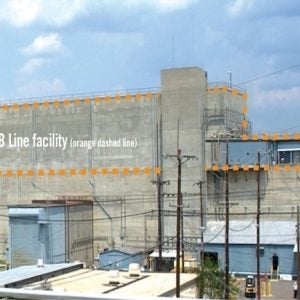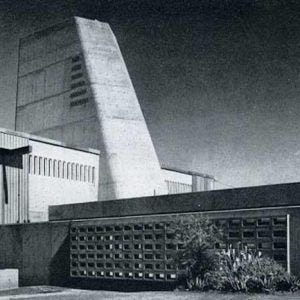A nuclear security agreement that will take effect on 8 May is intended to reduce the risk of a terrorist attack on any NPP and make it harder to smuggle nuclear material. The Amendment to the Convention on the Physical Protection of Nuclear Material (CPPNM) was secured on 8 April with the deposit of the instrument of ratification by Nicaragua, bringing the number of adherences to the convention to 102 states, the threshold required for the agreement to come into effect after 30 days. The Amendment, adopted more than a decade ago, will make it legally binding on countries to protect nuclear facilities. It will also extend the CPPNM’s application to nuclear material in domestic use, storage and transport.
The CPPNM, the only legally binding international undertaking in the area of physical protection of nuclear material, entered into force in 1987. It focuses on the physical protection of nuclear material used for peaceful purposes during international transport, but does not cover the protection of nuclear facilities or nuclear material in domestic use, storage and transport. In July 2005, the parties to the CPPNM adopted the Amendment. Currently, there are 152 parties to the convention.
The Amendment makes it legally binding for states to establish, implement and maintain an appropriate physical protection regime applicable to nuclear material and nuclear facilities under their jurisdiction. It provides for the criminalisation of new and extended specified acts, and requires countries to put in place measures to protect nuclear material and nuclear facilities against sabotage.
It also provides for expanded cooperation and information sharing between states regarding rapid measures to locate and recover stolen or smuggled nuclear material, to mitigate any radiological consequences of sabotage and to prevent and combat related offences. It also establishes channels for cooperation and consultation, directly among states either through established points of contact or through the International Atomic Energy Agency (IAEA), to obtain guidance on the design, maintenance and improvement of national systems of physical protection.
IAEA Director General Yikiya Amano announced earlier this month that the IAEA will host annual meetings of national points of contacts as well as periodic conferences to review the implementation of the convention. As depositary for the convention, he will convene a conference of states parties five years after the amendment enters into force to review the implementation and adequacy of the amended convention. The IAEA will facilitate implementation by providing legislative and technical assistance to member states.






